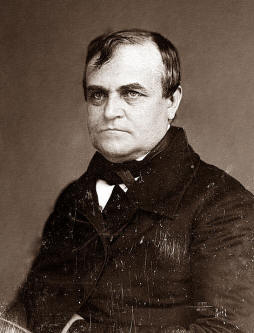Annotation:Dorr's Retreat: Difference between revisions
No edit summary |
No edit summary |
||
| Line 7: | Line 7: | ||
<br> | <br> | ||
The title "Dorr's Retreat" probably refers to his fleeing to New York after the Dorrites unsuccessful attack against the arsenal in Providence, Rhode Island, (where their canon misfired, but ignited the timidity of Dorr's force). | The title "Dorr's Retreat" probably refers to his fleeing to New York after the Dorrites unsuccessful attack against the arsenal in Providence, Rhode Island, (where their canon misfired, but ignited the timidity of Dorr's force). | ||
|f_printed_sources=<span>Elias Howe ('''Second Part of the Musician’s Companion'''), 1843; p. 59. | |f_printed_sources=<span>Elias Howe ('''Second Part of the Musician’s Companion'''), 1843; p. 59. | ||
}} | }} | ||
Revision as of 22:19, 28 January 2021
X:1 T:Dorr’s Retreat M:6/8 L:1/8 R:Jig N:See companion tune “Dorr’s Return” B:Elias Howe – Second Part of the Musician’s Companion (1843, p. 59) Z:AK/Fiddler’s Companion K:G D|GAB GAB|GAB cBA|GAB GAB|ABG FED| GAB GAB|GAB cBc|def gdg|b2a g2:| |:D|G2g {a}gfg|b2g {a}gfg|G2g {a}gfg|baa age| G2g {a}gfg|b2a gfe|ded dBA|BGG G2:|]

Dorr's exercise of rebellion was not forgiven, and in 1844 he received a sentence of life imprisonment at hard labor. He was not friendless, however, and sympathetic Whig politicians helped to secure his release in 1845, although by that time he was in poor health. A modern historian opined that Dorr was blinded by his insistence on standing on principle, pointing out that the Dorrites had been offered every reform they sought, but Dorr saw compromise as capitulation and would have none of it. See also Howe's companion piece "Dorr's Return."
The title "Dorr's Retreat" probably refers to his fleeing to New York after the Dorrites unsuccessful attack against the arsenal in Providence, Rhode Island, (where their canon misfired, but ignited the timidity of Dorr's force).

